Momentum for Climate Action
The past five years have brought a sea change in urban climate action: increased awareness of the critical role that local leaders play in carbon r

This Climate Solutions program is no longer active.
In 2016, Climate Solutions completed the seventh and final year of our successful New Energy Cities program. Combining research on urban carbon reduction best practices and partnering with Northwest cities and counties, we helped local communities accelerate carbon emissions reduction through climate and clean energy goal-setting, clean energy transition planning, policy development, program design, and implementation.
Our New Energy Cities program continued to work with the King County-Cities Climate Collaboration (K4C), a voluntary coalition of King County and 13 cities united in their goal to cut carbon emissions in half by 2030 supporting efforts to get underway with achieving its 90% renewable electricity by 2030. New Energy Cities formed a partnership with Stockholm Environment Institute to provide energy maps and carbon wedge analyses for Everett, WA (Snohomish County) and Olympia, WA (Thurston County). Our existing partnership with Tukwila, WA showed encouraging progress, with city leadership and staff eager to make deep carbon reductions in their community.
Climate Solutions is proud of New Energy Cities and its seven years of success. Although we phased out the program at the end of 2016, Climate Solutions will continue to help our city and county partners create political momentum to inform policy and drive carbon emissions reduction at the state and regional levels.
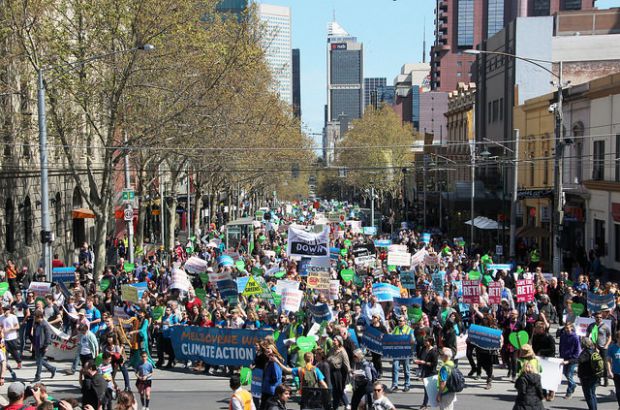
By: Elizabeth Willmott on
Cities are reducing climate pollution by investing in energy efficiency, renewable energy, electricity grid innovation, and clean transportation.

By: Elizabeth Willmott on
On March 10 Seattle took a key step on its path to be carbon neutral by 2050, when Mayor Ed Murray signed three energ
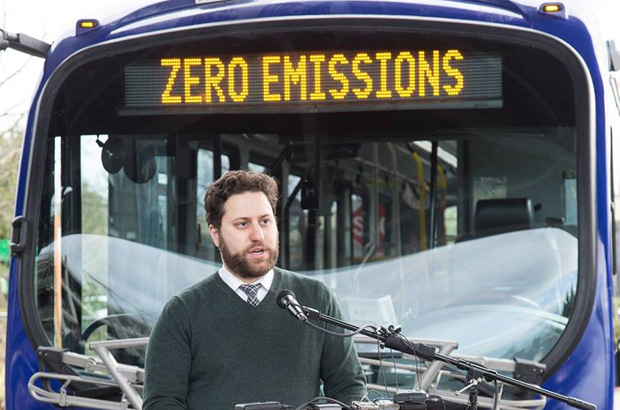
By: Vlad Gutman-Britten on
King County is extending its long record of leadership on clean public transit. But it's not content simply to be number one on reducing emissions; it's working to be number ZERO.
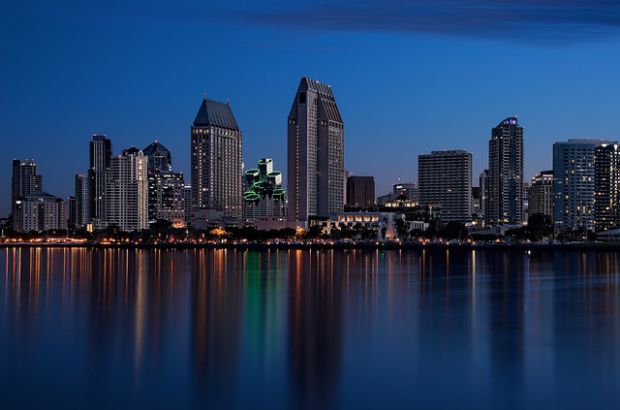
By: Elizabeth Willmott on
American cities are reducing climate pollution by investing in energy efficiency, renewables, grid innovations, and clean transportation. Energy Efficiency

By: Elizabeth Willmott on
Puget Sound Energy is a crucial player on Washington's path toward a clean energy future, but its 20-year resource plan falls significantly short on the urgency and boldness we need to make deep, near-term carbon reduction.

By: Regna Merritt on
Today in Portland, five west coast mayors announced aggressive commitments to aggressive action on both climate change and equity. The announcement comes directly after a Paris gathering of international mayors talking climate change; it also closely follows the groundbreaking climate resolutions passed last month in Portland. Here's the story of how those resolutions came to be.
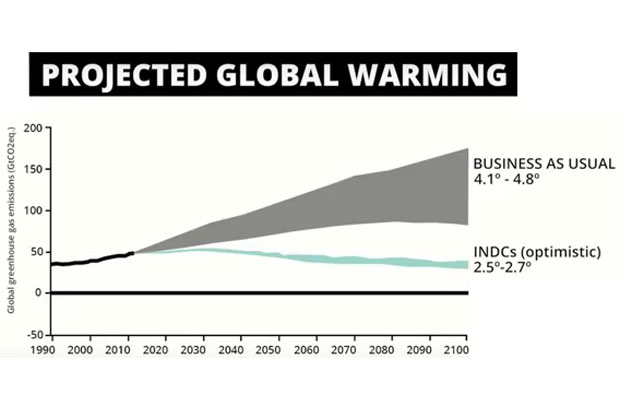
By: Jonathan Lawson on
Cities (or "sub-nationals," in international climate negotiations-speak) are at the vanguard of where real climate solutions are being implemented around the world. That will remain true in the years ahead, no matter how ambitious an agreement emerges from the COP21 climate talks in Paris this month--local and state governments will be shouldering much of the load of creative carbon emissions reduction, of energy efficiency improvements, and of access to renewable energy.
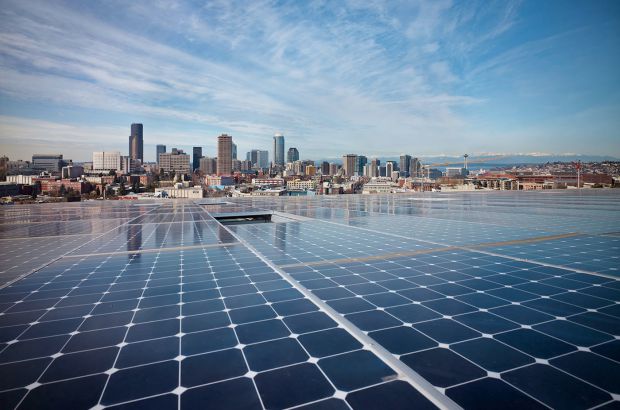
By: Elizabeth Willmott on
The Urban Clean Energy Revolution report details the state of play of low-carbon cities and describes a rich array of best practices and examples of urban clean energy innovation and carbon reduction.
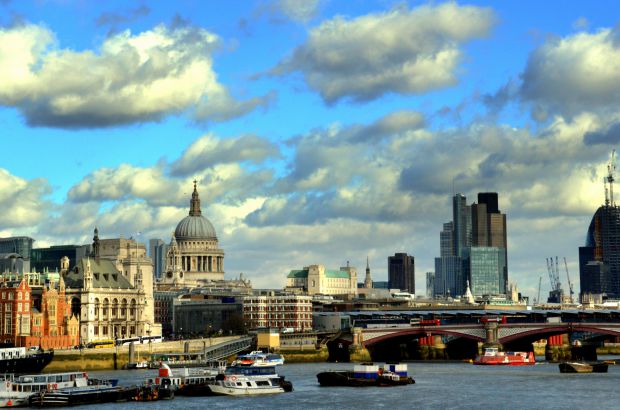
By: Elizabeth Willmott on
The international climate talks are a moment in time for forward-looking urban leaders to demonstrate the collective political will they have amassed for bold climate action, and to show how far they have already come in reducing carbon emissions.
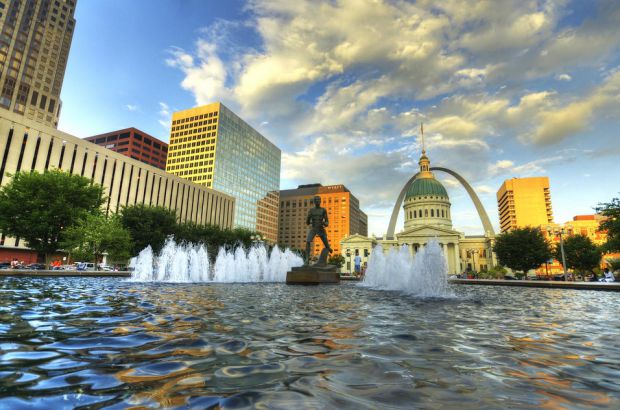
By: Elizabeth Willmott on
Urban leaders are increasingly aligning their carbon reduction and clean energy agendas with other important community priorities—such as air quality, transportation, social equity, economic development, and climate change resilience. In doing so, they forge stronger and more diverse coalitions for climate action.
Join our email list to learn about what we do and how to get involved.
The past five years have brought a sea change in urban climate action: increased awareness of the critical role that local leaders play in carbon r
Cities are reducing climate pollution by investing in energy efficiency, renewable energy, electricity grid innovation, and clean transportation.
On March 10 Seattle took a key step on its path to be carbon neutral by 2050, when Mayor Ed Murray signed
King County is extending its long record of leadership on clean public transit. But it's not content simply to be number one on reducing emissions; it's working to be number ZERO.
American cities are reducing climate pollution by investing in energy efficiency, renewables, grid innovations, and clean transportation.
Puget Sound Energy is a crucial player on Washington's path toward a clean energy future, but its 20-year resource plan falls significantly short on the urgency and boldness we need to make deep, near-term carbon reduction.
Today in Portland, five west coast mayors announced aggressive commitments to aggressive action on both climate change and equity. The announcement comes directly after a Paris gathering of international mayors talking climate change; it also closely follows the groundbreaking climate resolutions passed last month in Portland. Here's the story of how those resolutions came to be.
Cities (or "sub-nationals," in international climate negotiations-speak) are at the vanguard of where real climate solutions are being implemented around the world. That will remain true in the years ahead, no matter how ambitious an agreement emerges from the COP21 climate talks in Paris this month--local and state governments will be shouldering much of the load of creative carbon emissions reduction, of energy efficiency improvements, and of access to renewable energy.
The Urban Clean Energy Revolution report details the state of play of low-carbon cities and describes a rich array of best practices and examples of urban clean energy innovation and carbon reduction.